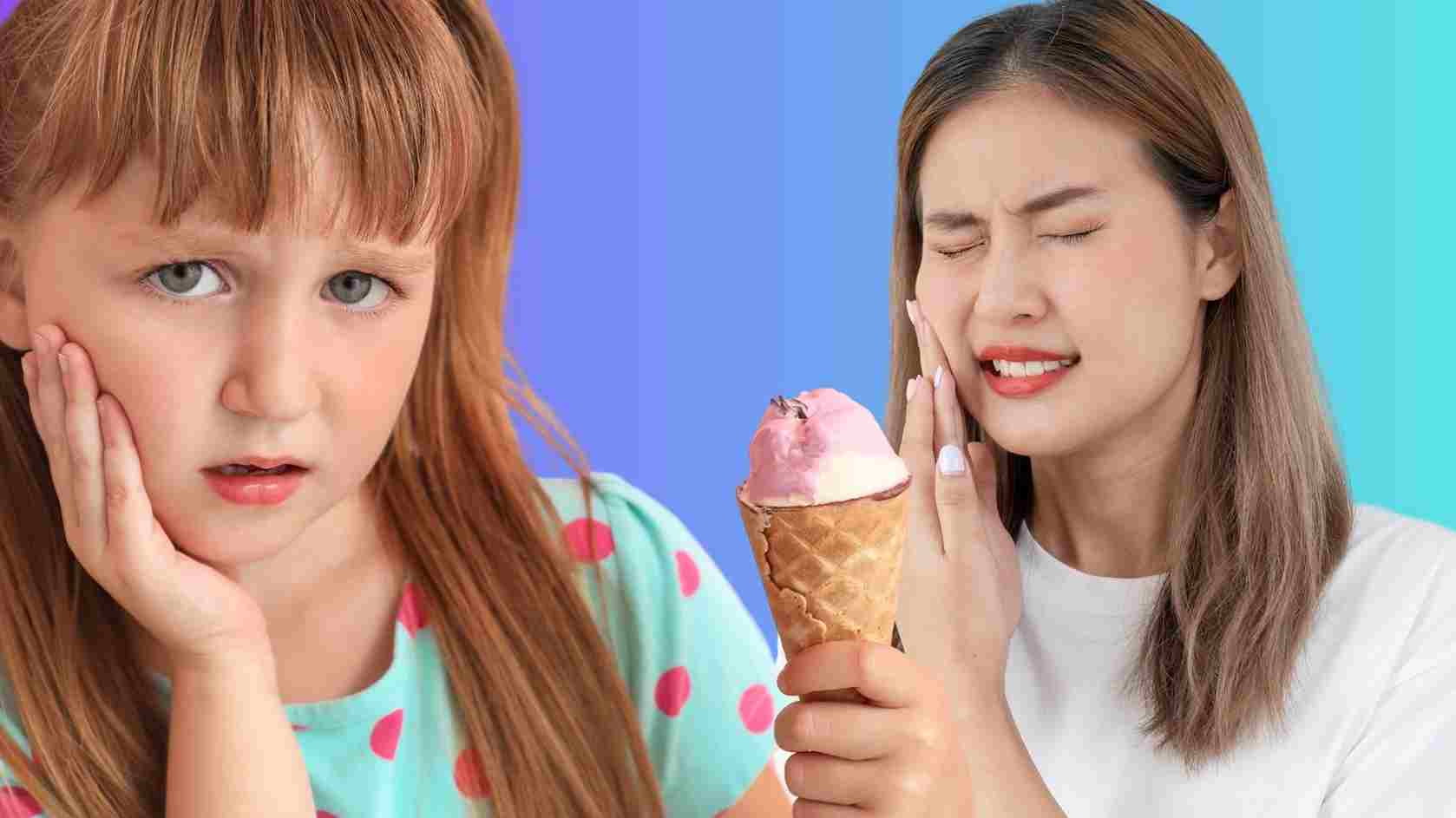Does Coffee Stain Your Teeth?
Yes, coffee can stain your teeth. Coffee contains tannins, which are a type of polyphenol that breaks down in water. These tannins can adhere to the enamel on your teeth and lead to staining.
While coffee isn't necessarily bad for teeth, over time, the compounds in coffee can penetrate the porous surface of your tooth enamel. This causes the yellow or brown discoloration that is often associated with frequent coffee consumption.
The staining effect is cumulative, meaning the more coffee you drink, the more likely you are to notice a change in the color of your teeth.
To minimize coffee-stained teeth, consider drinking your coffee in one sitting rather than sipping it throughout the day, which continuously exposes your teeth to tannins. Rinsing your mouth with water or brushing your teeth after drinking tea and coffee can also help reduce staining.
Additionally, using a straw when you drink coffee can minimize the contact it has with your teeth, especially if you prefer iced coffee. Finally, regular dental cleanings and using nano hydroxyapatite toothpaste or getting a professional whitening treatment can also help manage and reduce the appearance of coffee stains on your teeth.
We all love a good morning coffee, but it can certainly cause tooth discoloration.
In this article, I'll explain everything you need to know about how coffee affects your teeth and how to get rid of coffee teeth stains. Don't worry, coffee lover - this one's for you!
Why does drinking coffee stain your teeth?

Drinking coffee stains your teeth because it contains tannins, which are organic compounds that cause color compounds to stick to your teeth.
When you drink coffee, these tannins adhere to the dental enamel, the hard, outer layer of your teeth, leading to the yellow or brown discoloration often seen in frequent coffee drinkers. The porous nature of enamel allows these pigments to penetrate deeply, making the stains more persistent over time.
Additionally, coffee's acidity contributes to the staining process and can also cause tooth sensitivity. The acid in coffee can etch the surface of your teeth, creating damage with tiny microscopic pits and grooves where tannins and pigments can more easily accumulate.
This not only makes your teeth more prone to staining but can also exacerbate the wear of your enamel over time.
To combat coffee stains, we recommend rinsing your mouth with water after drinking coffee, brush your teeth regularly with a nano hydroxyapatite toothpaste that contains baking soda, and consider using whitening strips to keep your teeth shining bright.
Is drinking coffee good for our oral health?

Drinking coffee can have a nuanced impact on your oral health, offering both potential upsides and downsides.
On the positive side, coffee is rich in antioxidants, which play a crucial role in protecting your gums and oral tissues from oxidative stress and inflammation. These antioxidants can contribute to healthier gums, potentially warding off periodontal diseases.
Additionally, certain compounds in coffee might exhibit antibacterial properties, offering some defense against the bacteria responsible for tooth decay and gum disease. However, it's important to approach these benefits with a balanced perspective, as the research is still evolving and should not be the sole reason to increase your coffee intake.
On the flip side, regular coffee consumption is well-known for its ability to stain teeth. The tannins in coffee adhere to your enamel, leading to noticeable discoloration over time.
Also, coffee's acidity can erode tooth enamel, increasing your risk of decay, sensitivity, and cavities. This is compounded by caffeine's tendency to reduce saliva production, leading to a dry mouth, which diminishes your mouth's natural ability to fight off bacteria and neutralize acids.
To mitigate these effects, consider moderating your coffee consumption and always follow up with water to help neutralize the acid and reduce staining.
Further, adopting good oral hygiene practices, including regular brushing, flossing, and dental check-ups, will also help maintain your oral health, allowing you to enjoy your coffee while keeping your smile bright and healthy.
How to Avoid Coffee Stains on Your Teeth

Avoiding tea and coffee stains on your teeth involves a few strategic habits that can help maintain a bright smile without having to give up your favorite beverage. Let's walk through some of the key ways to prevent staining.
Rinse with Water
After enjoying a cup of tea, make sure to rinse your mouth with water. This simple step helps wash away tannins and pigments that cause staining before they have a chance to settle on your teeth.
Use a Straw
When possible, drink tea through a straw, especially if you prefer iced tea. This method reduces the amount of liquid that comes in contact with the visible front surfaces of your teeth.
Add Milk
Research suggests that adding milk to your tea, and potentially coffee, may reduce its staining potential. This may be because the proteins in milk inhibit the tannins in tea and prevent stains.
Maintain Good Oral Hygiene
Brush your teeth at least twice a day with nano hydroxyapatite toothpaste and use expandable dental floss daily. You can also consider using a whitening toothpaste, though some dental professional consider it bad as it can erode away enamel.
Thankfully, regularly brushing with nano hydroxyapatite toothpaste helps remove surface stains and prevents them from setting in without causing damage. Plus, remineralizing toothpaste can prevent tooth decay which can also cause the appearance of tooth stains.
Professional Dental Cleanings
Of course, it's important to see a dentist regularly for a professional cleaning. Your dentist or hygienist can remove surface stains more effectively than at-home care and can offer advice or teeth whitening treatments to further reduce staining.
You can also consider using natural whitening strips at home as needed for a quick, effective way to remove stains from tea.
How to Get Rid of Coffee Stains on Your Teeth

To get rid of coffee stains on your teeth and potentially brighten your smile, incorporating nano-hydroxyapatite toothpaste into your oral hygiene routine can be an effective strategy.
But that's not all! Let's walk through some of the key tactics you can use to remove tea staining.
Use Nano Hydroxyapatite Toothpaste
While nHA toothpaste is not a bleaching agent like hydrogen peroxide, studies show its ability to remineralize and repair enamel can lead to a brighter appearance of the teeth.
Plus, smoother, healthier enamel reflects light better, which can make your teeth look whiter and reduce the visibility of stains.
Try Whitening Strips
Whitening strips are a popular and effective option for removing teeth stains and achieving a brighter smile. These thin, flexible strips are coated with a whitening gel that typically contains hydrogen peroxide or carbamide peroxide as the active ingredient.
Coconut whitening strips are effective for many people, offering noticeable whitening by several shades. They are particularly good at addressing stains from coffee, tea, wine, and smoking.
Professional Cleaning
Regular visits to the dentist for professional cleanings can remove surface stains more effectively than brushing alone. Dental hygienists use specialized tools and techniques to gently remove plaque and stains, including those caused by tea.
Daily Oral Hygiene
Brush your teeth at least twice a day and floss daily. You should consider using an electric toothbrush with a whitening head to enhance stain removal.
Dietary Adjustments
Limit or avoid foods and beverages known to stain teeth, and consume them in moderation. When you do indulge in tea, follow it with water to help rinse away staining compounds or brush your teeth afterward.
Whitening Treatments
For more stubborn stains, consult with your dentist about professional whitening treatments. These treatments can offer more dramatic results than over-the-counter products.
Just remember that you wait about 48 hours to drink coffee after teeth whitening to prevent further staining.
What other foods and drinks stain teeth?

Besides tea and coffee, several other foods and drinks can stain your teeth due to their high pigment content, acidity, or both. Here are five of the most common offenders:
-
Red Wine: Known for its high tannin content, red wine can leave noticeable stains on your teeth, giving them a dull, grayish hue over time.
- Whiskey: Dark whiskey varieties contain tannins and chromogens that can stain teeth over time.
-
Colored Sodas: Dark-colored sodas contain acidic compounds and chromogens, pigments that can cling to tooth enamel and cause staining.
-
Berries: Blueberries, blackberries, cranberries, and other dark-colored berries, whether eaten whole, in jams, or as juice, can stain teeth due to their intense color and acidity.
-
Tomato-Based Sauces: Tomatoes are acidic and have strong natural pigments, making tomato-based sauces like pasta sauce and ketchup potential teeth stainers.
-
Curry: This flavorful spice, common in Indian cooking, is known for its deep pigmentation, which can yellow teeth over time.
Now- you don't have to completely avoid these foods, but be mindful of their potential to cause discoloration. Try consuming them in moderation, and brush your teeth regularly to prevent staining.
Frequently Asked Questions
How do you keep coffee from staining your teeth?
To prevent coffee from staining your teeth, consider drinking through a straw to bypass direct contact with your teeth. Rinse your mouth with water after consuming coffee to help wash away residue. Additionally, consider using a nano hydroxyapatite toothpaste, as it can help remineralize the enamel and potentially reduce the adherence of stains, or opt for regular dental cleanings to counteract staining. Moderating your coffee intake and drinking it less frequently throughout the day can also reduce the likelihood of stains. Moreover, incorporating dairy or a dairy alternative into your coffee can help, as the proteins in milk can bind to the polyphenols in coffee, preventing them from staining your teeth as much.
Will one coffee a day stain teeth?
Drinking one coffee a day is unlikely to cause significant staining on teeth, especially if you maintain good oral hygiene habits. However, over time, regular consumption of coffee can contribute to the buildup of stains on teeth. Factors such as the frequency of consumption, the duration of exposure, and individual dental hygiene practices can influence the extent of staining. Moderating your coffee intake, rinsing your mouth with water after drinking coffee, and practicing regular dental care can help minimize the risk of stains.
How can I get caffeine without staining my teeth?
You can consume caffeine without staining your teeth by opting for alternative sources such as caffeine pills or supplements, which bypass direct contact with your teeth. Another option is to choose lighter-colored beverages like green tea or herbal teas that are less likely to cause staining compared to coffee. Additionally, you can try using a straw when drinking caffeinated beverages to minimize contact with your teeth. Finally, maintaining good oral hygiene practices, such as brushing and flossing regularly, can help prevent or reduce staining caused by caffeine consumption.
How do coffee drinkers keep their teeth white?
Coffee drinkers can maintain white teeth by implementing several strategies. These include drinking coffee through a straw to minimize direct contact with teeth, rinsing the mouth with water after consuming coffee to wash away residue, and using nano hydroxyapatite toothpaste or undergoing professional dental cleanings regularly to counteract staining. Additionally, moderating coffee intake and opting for lighter-colored beverages can help prevent significant discoloration. Lastly, incorporating dairy or a dairy alternative into coffee can mitigate staining, as the proteins in milk can bind to coffee's polyphenols, reducing their ability to adhere to teeth.
What drink won't stain teeth?
Some drinks that are less likely to stain teeth include clear liquids like water and herbal teas. Green tea, for example, contains fewer staining compounds compared to coffee and black tea. Additionally, drinks that are lighter in color and less acidic, such as white tea or coconut water, are less likely to cause staining. However, it's important to note that maintaining good oral hygiene practices, such as regular brushing and flossing, is crucial for preventing staining regardless of the beverage consumed.
Does coffee permanently stain teeth?
No, coffee stains on teeth are not usually permanent and can often be removed or significantly lightened with proper dental care. Regular brushing, especially with nano hydroxyapatite toothpaste, and flossing can help reduce surface stains. Professional dental cleanings are very effective at removing coffee stains, as dental hygienists use specialized tools and techniques to clean your teeth thoroughly. Additionally, professional teeth whitening procedures can address more stubborn stains, making your teeth several shades lighter. However, if the staining is left untreated for a long period, it can lead to more permanent discoloration, which might require more intensive treatments to correct.
Does mushroom coffee stain your teeth?
Mushroom coffee typically contains less pigmentation than traditional coffee, so it's less likely to cause staining on teeth. However, individual reactions to staining can vary based on factors such as frequency of consumption and oral hygiene habits. Additionally, additives like sweeteners can increase the potential for staining. As with any beverage, maintaining good oral hygiene practices, such as regular brushing and dental cleanings, can help minimize the risk of staining from mushroom coffee or any other beverage.






















